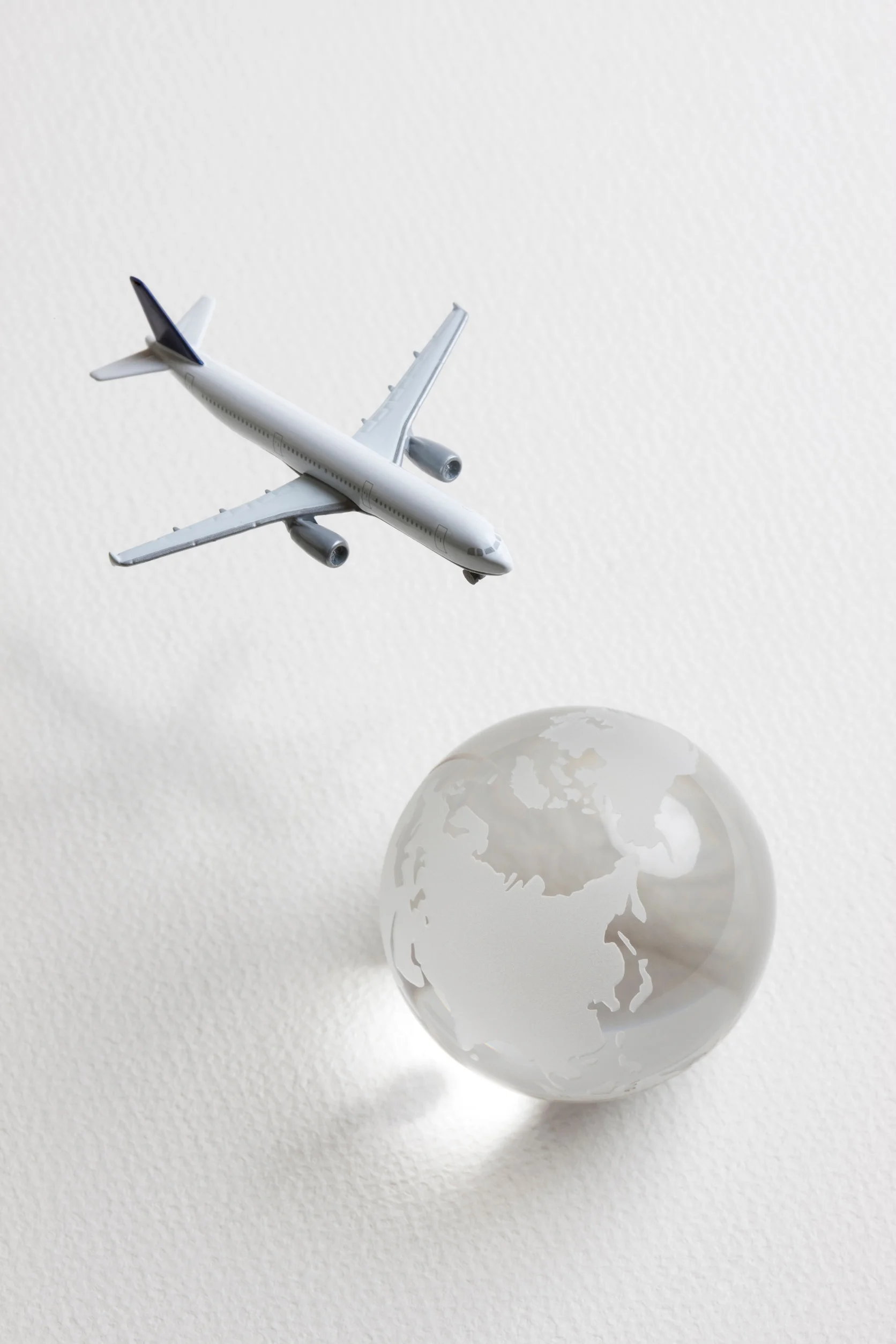A Complete Travel Guide to Yaoundé
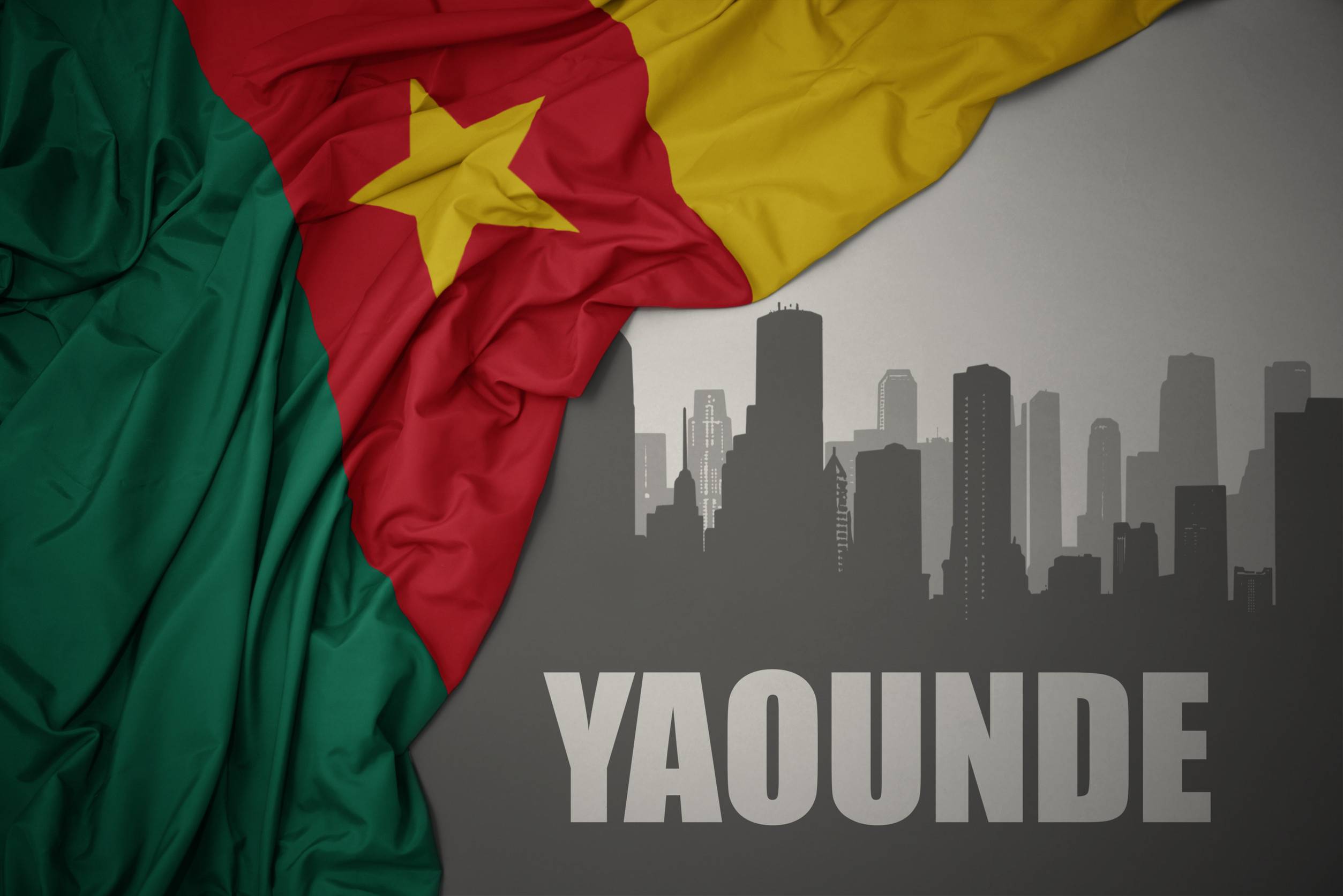
Yaoundé is often called the "City of Seven Hills." It’s the capital city of Cameroon and a lively place full of culture and history. Surrounded by green hills and trees, the city mixes old Cameroonian traditions with modern life. This easy travel guide will help you discover the best places to see, things to do, and how to enjoy Yaoundé fully. Before you begin your adventure in this charming city, make sure to apply for Cameroon eVisa to ensure a smooth and stress-free entry into the country.
Quick Overview of Yaoundé
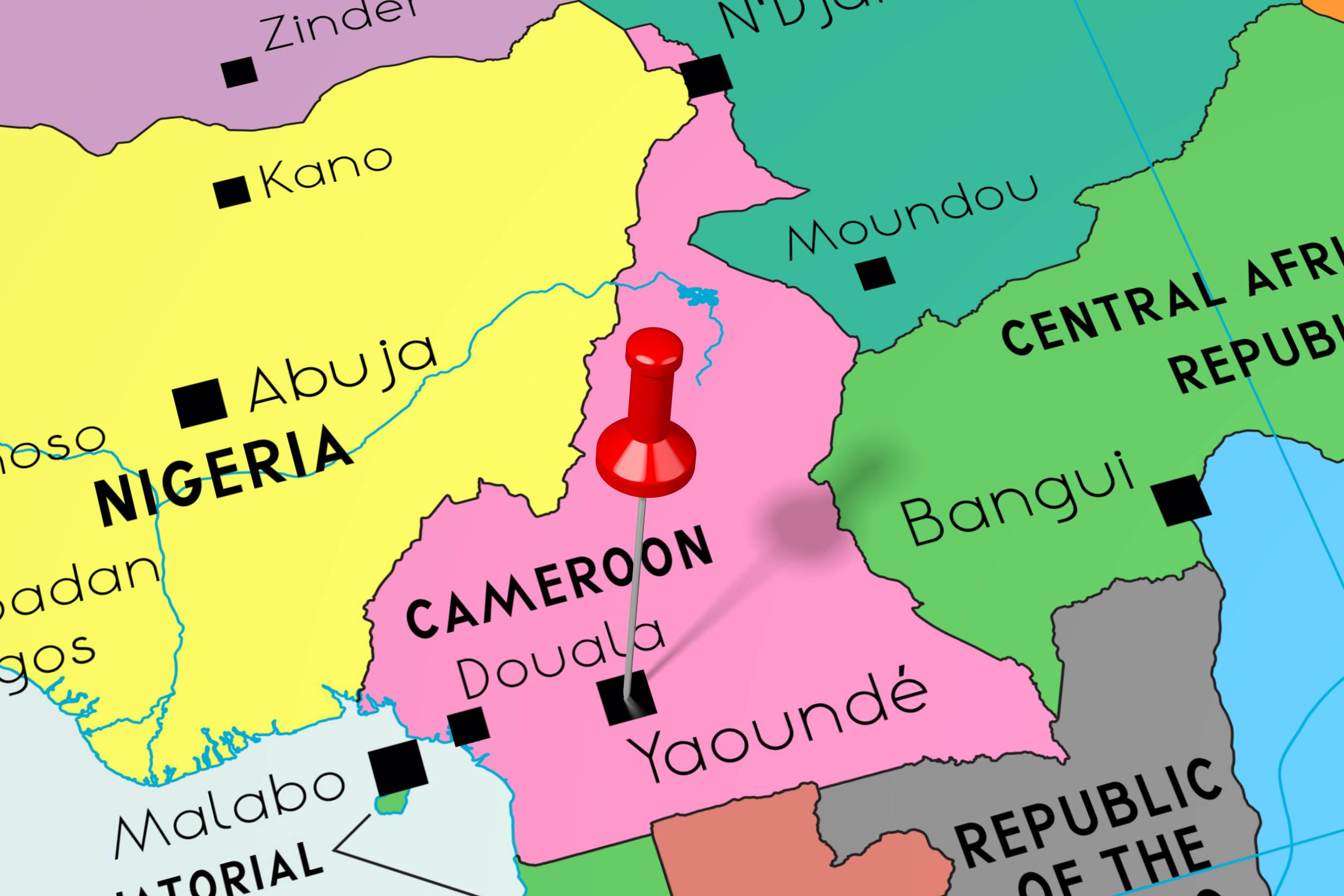
- Country: Cameroon
- Region: Centre Region
- Language: French (main), English (second), Pidgin & local languages
- Currency: Central African CFA Franc (XAF)
- Best Time to Visit: November to February (dry season)
- Airport: Yaoundé Nsimalen International Airport (NSI)
Why Visit Yaoundé? Top Reasons to Explore Cameroon’s Capital
Yaoundé offers a compelling experience for travelers seeking an authentic African adventure.
- Enjoy Local Culture: Yaoundé is full of tradition. You can visit museums and cultural centers to learn about the history and the 250+ ethnic groups in Cameroon.
- Shop in Local Markets: Walk through busy markets and see fresh fruits, spices, colorful clothes, and handmade crafts. It’s a great place to feel the city’s energy and find souvenirs.
- Learn About History: Visit monuments and old buildings that show the story of Cameroon’s independence and how the country came together.
- Relax in Green Spaces: Even though it’s a busy city, Yaoundé has peaceful places like parks, gardens, and lakes where you can enjoy nature.
- Taste Delicious Food: Try Cameroonian food—it’s a mix of African, French, and local tastes. You’ll love dishes made with fresh ingredients and strong flavors.
- Start Your Cameroon Adventure: Yaoundé is a good starting point if you want to explore other parts of the country. There are buses, taxis, and flights to help you travel around.
Best Time to Visit Yaoundé: Weather, Festivals & Events
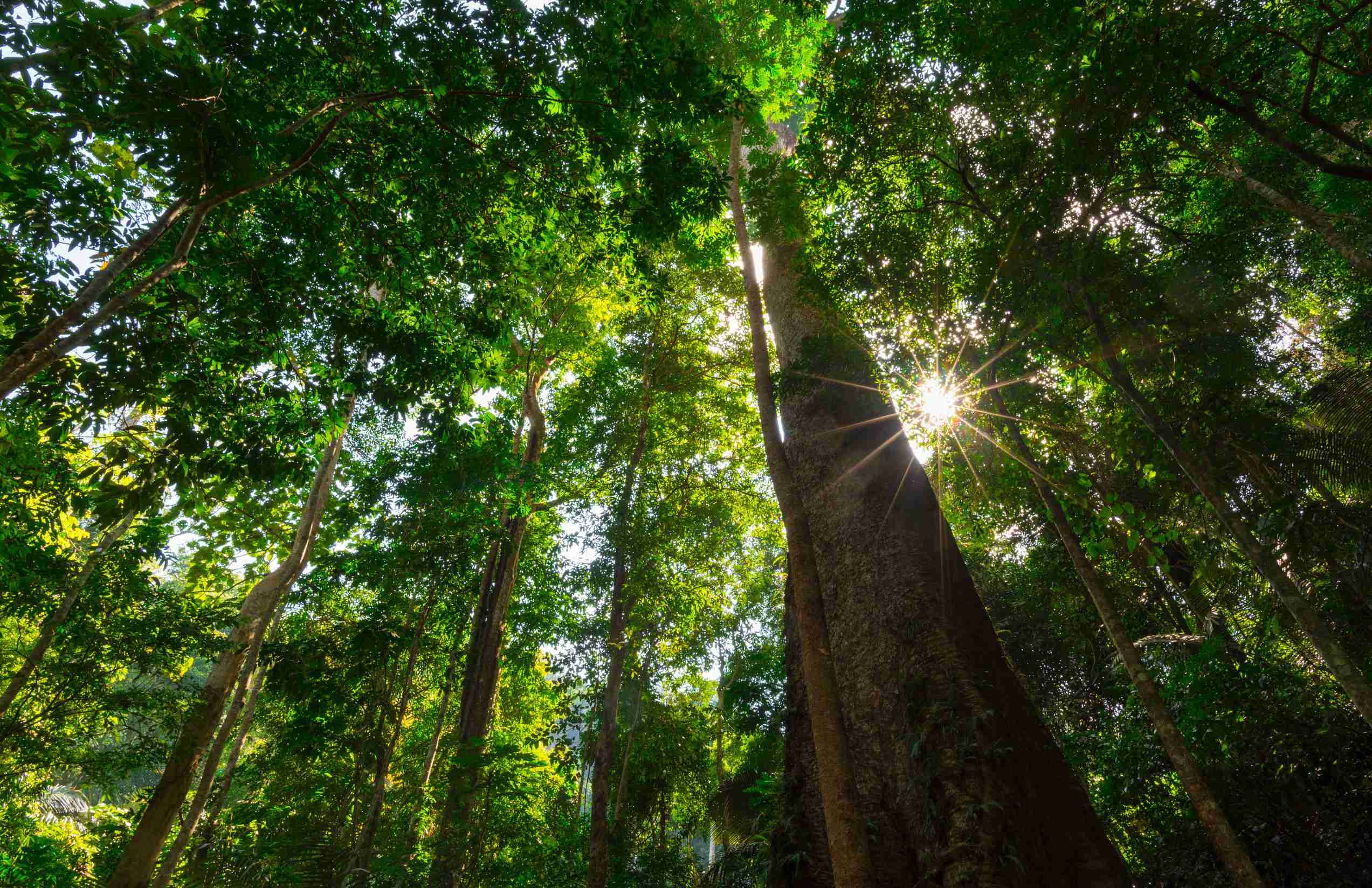
The best time to visit Yaoundé is between November and February. This is the dry season, when the weather is cooler, there’s less rain, and it’s perfect for walking around, sightseeing, and outdoor fun.
Weather in Yaoundé
- Dry season (Nov–Feb): Nice weather with cool evenings and less humidity. You might see some dust in the air because of the Harmattan wind from the Sahara, but it also brings cooler air.
- Rainy season (May–Nov): It rains a lot, especially from July to September. Roads can be muddy and travel might be harder, but the green landscapes during this time are very beautiful.
Festivals & Events
Yaoundé doesn’t have big, regular festivals like some other cities, but:
- You can still find local events, music shows, and art exhibits happening throughout the year.
- Ask your hotel staff or a local guide about what’s going on during your visit.
How to Plan a 3-Day Trip to Yaoundé (Sample Itinerary)
Here’s a sample itinerary to help you make the most of a short trip to Yaoundé:
Day 1: History and Culture Deep Dive
- Morning: Arrive at Yaoundé Nsimalen International Airport (NSI), transfer to your hotel, and check in.
- Afternoon: Visit the National Museum (Musée National), housed in the former presidential palace, to gain an understanding of Cameroon's rich history and diverse ethnic groups.
- Late Afternoon: Explore the nearby Monument de la Réunification, a powerful symbol of national unity.
- Evening: Enjoy a traditional Cameroonian dinner at a local restaurant, trying Ndolé or Poulet DG.
Day 2: Nature, Art, and Local Life
- Morning: Take a trip to the Mefou National Park, a primate sanctuary located just outside the city, to see rescued monkeys and chimpanzees.
- Afternoon: Return to the city and visit the Benedictine Museum of Mont-Febe for unique carvings and panoramic city views. Alternatively, explore the Blackitude Museum for an impressive collection of tribal masks and artifacts.
- Late Afternoon: Immerse yourself in the bustling atmosphere of Mokolo Market, a sensory overload of sights, sounds, and smells.
- Evening: Enjoy street food like soya (grilled skewers) and experience Yaoundé's nightlife at a local bar or lounge.
Day 3: Serenity and Departure
- Morning: Visit the Mvog-Betsi Botanical Zoological Garden for a closer look at Cameroon's diverse wildlife. Alternatively, enjoy a peaceful stroll around the Municipal Lake or explore the serene Bois Sainte Anastasie.
- Late Morning: Do some last-minute souvenir shopping at the Yaoundé Central Market or one of the craft centers.
- Afternoon: Enjoy a final Cameroonian lunch.
- Late Afternoon: Transfer to Yaoundé Nsimalen International Airport (NSI) for your departure.
A Tourist’s First-Time Checklist for Visiting Yaoundé
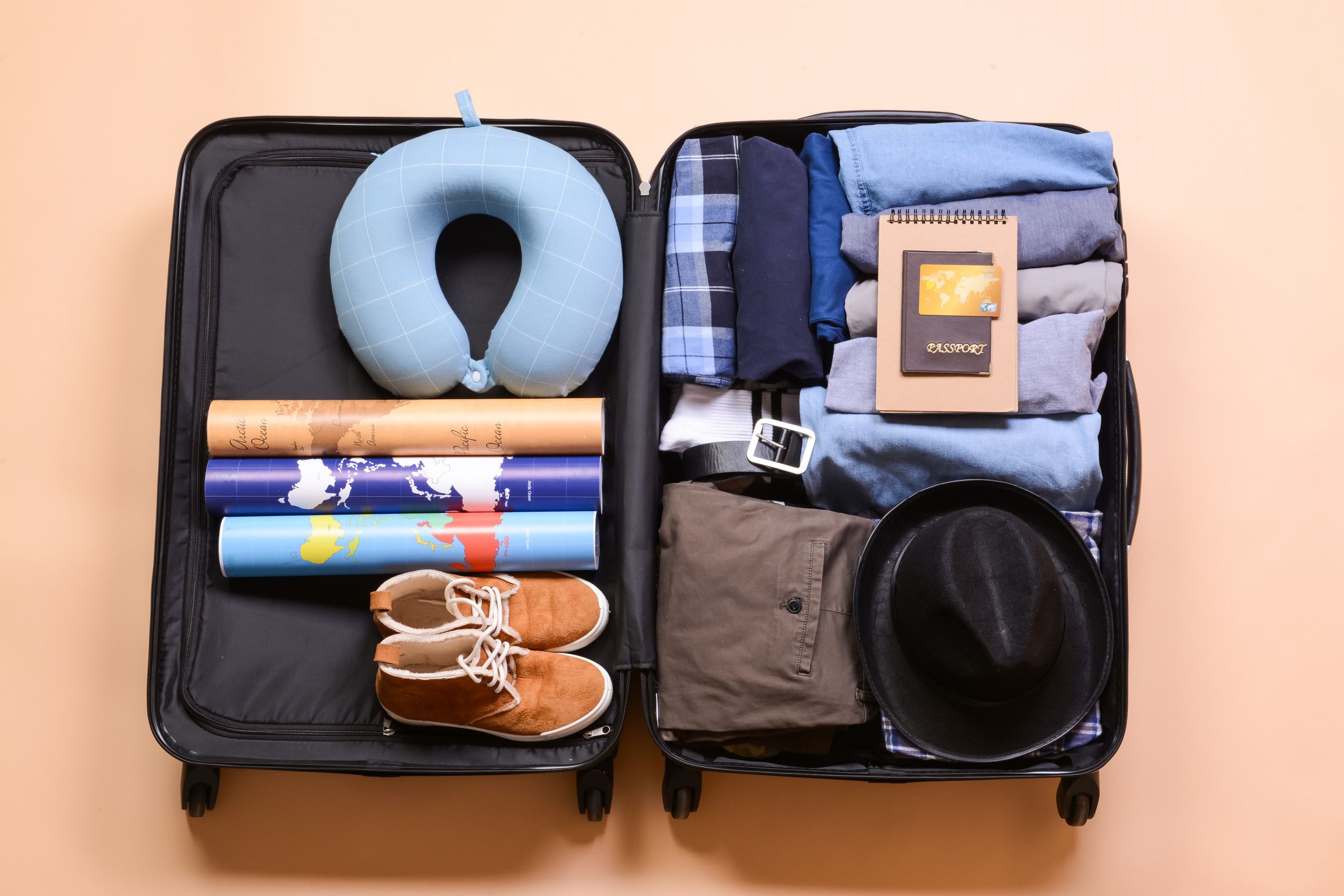
Here is a quick check for what travelers should have for a first time visit in Cameroon:
- Cameroon eVisa: Check visa requirements for Cameroon and apply for one well in advance if needed.
- Vaccinations: Consult a travel health specialist for recommended vaccinations (Yellow Fever is often mandatory) and malaria prophylaxis.
- Travel Insurance: Purchase comprehensive travel insurance.
- Local Currency (XAF): Have some Central African CFA francs (XAF) in small denominations for initial expenses.
- Power Adapter: Bring a universal power adapter (Type E or C).
- Comfortable Shoes: For walking around markets and attractions.
- Lightweight Clothing: For the warm climate.
- Rain Gear: If traveling during the rainy season.
- Insect Repellent: Essential for mosquito protection.
- Sunscreen & Hat: For sun protection.
- Copy of Documents: Keep digital and physical copies of your passport, visa, and flight details separate from the originals.
- Basic French Phrases: Even a few will be helpful.
- Local SIM Card: Consider purchasing one for easier communication and data.
Yaoundé Nsimalen International Airport: What to Expect Upon Arrival
Yaoundé Nsimalen International Airport (NSI) is the main international gateway to Yaoundé.
- Immigration: Be prepared for potentially lengthy immigration procedures. Have your passport, visa, and yellow fever vaccination certificate readily available.
- Baggage Claim: Proceed to baggage claim after immigration.
- Currency Exchange: There are currency exchange counters and ATMs in the arrival hall, but rates might not be the best. Consider exchanging a small amount here and more in the city.
- Taxi Stand: Official airport taxis are usually available just outside the terminal. It's recommended to negotiate the fare before getting into the car.
Yaoundé Airport to City Center: Transport Options
Getting from Yaoundé Nsimalen International Airport to the city center is fairly easy, with taxis being the most common option. Airport taxis are available just outside the terminal and offer a direct ride into town. It's a good idea to agree on the fare before starting the journey, as prices are usually negotiable. The drive takes about 45 to 60 minutes, depending on traffic.
Another option is using a ride-hailing app like Yango, which can sometimes give you a better or more predictable price than regular taxis. To use Yango, you’ll need internet access—either through airport Wi-Fi or a local SIM card. This can be a more convenient and transparent option for travelers who prefer app-based bookings.
Getting Around Yaoundé: Taxis, Ride Apps, and Local Transport Tips
Moving around Yaoundé is fairly easy once you know your options. Here’s a quick guide to help you travel safely and comfortably in the city:
- Shared Taxis (Taxi Commun): Cheap and common. The driver picks up several people going in the same direction. Not ideal if you have luggage or want direct travel.
- Private Taxis (Taxi Depot): You pay to use the whole taxi. Safer and better for tourists—especially at night. Always agree on the price before the ride.
- Motorbike Taxis (Benskins): Cheap and fast, but not safe for tourists due to risky driving and no helmets. Best to avoid.
- Ride Apps (Yango): Works like Uber. Safer and more comfortable. Prices are shown in advance. Great for airport pickups and hotel rides.
- Walking: Good only for short distances in safe, busy areas during the day. The city’s hills and traffic can make long walks difficult.
Best Neighborhoods to Stay in Yaoundé (For Tourists, Business, Budget)
Choosing the right area to stay in Yaoundé can make your visit smoother and more enjoyable. Whether you're here for business, sightseeing, or saving money, here's a quick guide to help you decide:
|
Neighborhood |
Best For |
Pros |
Cons |
|
Bastos |
Luxury, business travelers, embassies, safety |
Modern, secure, quiet, upscale restaurants and hotels |
Expensive, limited local culture exposure |
|
Quartier du Lac / Hippodrome |
Tourists wanting access to attractions and restaurants |
Central, safe, lots of dining and shops |
Can be busy with traffic congestion |
|
Melen / Tsinga |
Budget travelers and cultural immersion |
Affordable guesthouses, local vibe, near university |
Noisier, fewer tourist services, may need more caution |
|
Central (City Center) |
Access to government offices, museums, and historic sites |
Convenient, good for short business stays |
Crowded, fewer hotel choices than upscale areas like Bastos |
Top Hotels in Yaoundé for Every Budget (Luxury to Budget Stays)
Whether you’re visiting Yaoundé for business or leisure, there’s a wide range of accommodation to suit your needs. From luxury hotels with top-notch amenities to affordable guesthouses, here are some top options:
Luxury
- Hilton Yaoundé: A top international hotel with modern rooms, several restaurants, pool, gym, and excellent business facilities.
- Star Land Hotel Bastos: Stylish and modern, located in the upscale Bastos neighborhood. Offers comfort, great service, and a rooftop terrace.
- Hotel La Falaise Yaoundé: Known for its cozy rooms, good customer service, and swimming pool.
Mid-Range
- Larochelle Hôtel: A clean and well-rated hotel offering good value for money and friendly staff.
- Hôtel The Place: Contemporary design with a relaxed atmosphere, often chosen by business and leisure travelers alike.
- Merina Hotel: Centrally located with comfortable rooms, a pool, and touches of local décor.
- Hôtel Djeugo Palace: Offers the basics with decent comfort and quiet surroundings.
Budget
- HELEN HOTEL: Affordable option with clean, simple rooms and helpful service.
- Local Guesthouses: Found in neighborhoods like Melen or Tsinga—these are often cheap and homey. Check online reviews and book through trusted sites for safety and comfort.
Staying Safe & Comfortable in Yaoundé: Tips for Choosing a Hotel
- Read Reviews: Always check recent reviews from other travelers, focusing on cleanliness, safety, and customer service.
- Location: Prioritize hotels in reputable and safer neighborhoods like Bastos or Quartier du Lac.
- Security: Look for hotels with good security measures (24-hour reception, security guards, CCTV).
- Amenities: Ensure the hotel offers amenities crucial to your comfort, such as air conditioning (essential!), reliable Wi-Fi, and hot water.
- Backup Power: Power outages can occur; a hotel with a generator is a big plus.
- In-House Dining: Having an in-house restaurant or room service can be convenient, especially after a long day of exploring.
- Water: Check if the hotel provides complimentary bottled water.
Top 10 Attractions in Yaoundé You Shouldn’t Miss
Yaoundé, Cameroon’s capital city, is full of culture, nature, and history. Whether you love museums, wildlife, or local markets, these top spots will make your visit unforgettable:
- National Museum (Musée National): Learn about Cameroon's history, traditions, and past presidents through displays of clothing, art, and cultural items.
- Monument de la Réunification: A famous landmark symbolizing the unification of French and British Cameroon—great for photos and reflection.
- Mefou National Park: Just outside the city, this park is home to rescued gorillas, chimpanzees, and monkeys. Perfect for nature lovers.
- Benedictine Museum of Mont-Febe: A peaceful spot offering religious art, African crafts, and beautiful views over the hills of Yaoundé.
- Mokolo Market: A busy local market where you can feel the city's energy, try street food, and shop for fabrics, spices, or souvenirs.
- Mvog-Betsi Botanical Zoological Garden: A family-friendly place with native animals like lions, snakes, and birds, plus shaded walking paths.
- Basilica of Mary Queen of Apostles: One of Yaoundé’s largest churches, known for its striking architecture and calm atmosphere.
- Blackitude Museum: A small but rich museum featuring tribal artifacts, traditional weapons, musical instruments, and royal relics.
- Municipal Lake (Lac Municipal): A quiet spot in the city center to take a walk, relax, or enjoy a peaceful break from busy streets.
- Yaoundé Central Market: A great place for local shopping—find clothes, crafts, food, and interact with friendly locals.
Cultural Sites in Yaoundé: Museums, Monuments, and Historic Places
Yaoundé is rich in history and culture, offering several landmarks where visitors can learn about Cameroon’s past and diverse traditions. Here are some must-visit cultural spots:
- National Museum (Musée National): Located in the former presidential palace, it offers a comprehensive overview of Cameroonian history, ethnography, and art.
- Monument de la Réunification: Symbolizes the reunification of former British and French Cameroons in 1961. An important national monument with significant historical value.
- Benedictine Museum of Mont-Febe: Features the unique art of "Abbia" (carvings on dried fruit shells) and other religious artifacts.
- Blackitude Museum: Dedicated to the traditional art and culture of various Cameroonian ethnic groups, showcasing masks, sculptures, and ceremonial objects.
- Basilica of Mary Queen of Apostles (Basilique Marie-Reine-des-Apôtres): A grand Catholic basilica built on a historic site.
- Mosquée Centrale: The central mosque in the Briqueterie neighborhood, an impressive architectural structure.
- Palais des Sports: A modern indoor arena that hosts various cultural and sporting events.
Outdoor Activities in Yaoundé: Parks, Hills, and Day Trips
Yaoundé isn’t just about city life—it also offers green spaces and nature escapes for relaxation or adventure. Here are top outdoor activities to enjoy:
- Mefou National Park: A must-do day trip for observing rescued primates (chimpanzees, gorillas, drills) in a semi-wild environment.
- Mvog-Betsi Botanical Zoological Garden: A well-maintained zoo with a good collection of local and regional wildlife, including big cats, primates, and birds.
- Municipal Lake: Offers a serene setting for a leisurely walk, jogging, or simply relaxing by the water.
- Bois Sainte Anastasie: A smaller, tranquil green space perfect for a quiet stroll and escaping the city's hustle.
- Climbing Mont Febe: For those interested in a bit of a hike, reaching the summit of Mont Febe (where the Benedictine Museum is located) offers fantastic panoramic views of Yaoundé.
Nightlife in Yaoundé: Bars, Lounges, and Live Music Spots
Yaoundé's nightlife is lively, particularly on weekends.
- Success Bar: A popular spot known for its energetic atmosphere.
- Monsieur Cocktail: Often praised for its sophisticated ambiance and creative cocktails.
- Hotel Bars: Many of the larger hotels (e.g., Hilton, Star Land) have their own bars and lounges that are safe and offer a good environment for drinks.
- Local Bars (Maquis): You'll find numerous smaller local bars (often called "maquis") throughout the city, offering a more authentic experience with local music and drinks. Exercise caution and consider going with a local guide or friend.
- Live Music: Some larger venues or hotel bars may feature live music, often traditional Cameroonian styles like makossa or bikutsi.
Where to Eat in Yaoundé: Best Local Dishes & Restaurants
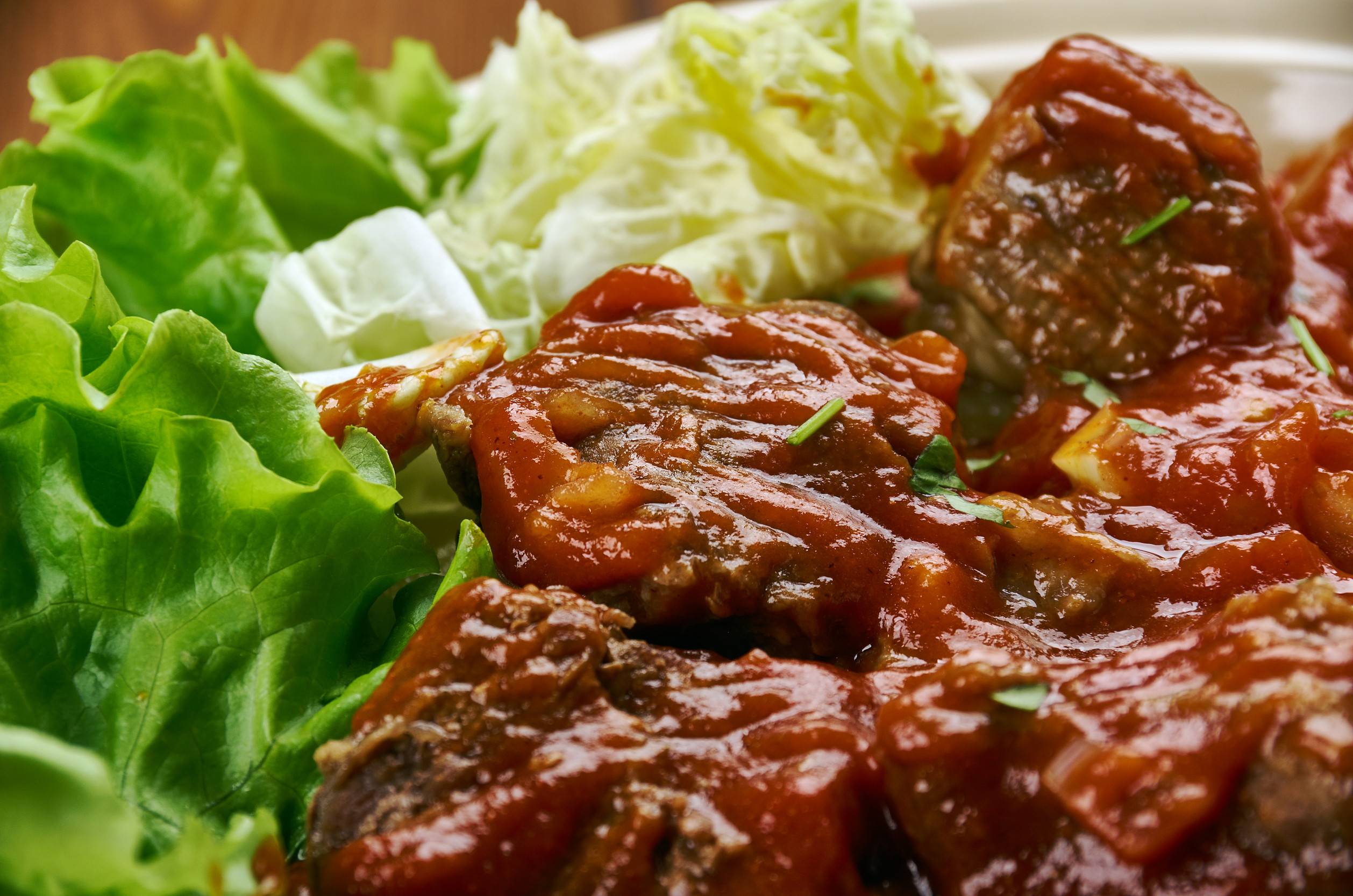
Cameroonian food is flavorful, diverse, and a big part of the cultural experience in Yaoundé. Whether you want to try street food or dine in a restaurant, here are some must-try dishes and recommended places to eat:
Local Dishes to Try:
- Ndolé: A popular stew made with bitterleaf, ground peanuts, and meat like beef, shrimp, or dried fish. Often served with plantains or fermented cassava sticks (miondo).
- Poulet DG: Short for "Director General Chicken," this dish mixes fried plantains, chicken, and vegetables in a tasty sauce.
- Fufu Corn and Njama Njama: Fufu corn is a thick cornmeal dough, served with a green vegetable stew called njama njama (made from huckleberry leaves).
- Eru: A thick, leafy soup from the Southwest, made with eru and waterleaf, palm oil, meat or smoked fish—served with soft water fufu.
- Koki: A savory steamed cake made from black-eyed peas and palm oil, cooked in banana leaves.
- Kondreh: Tender unripe plantains stewed with goat meat and local spices—a hearty, filling meal.
Recommended Restaurants:
- Le Wengué: Great for trying authentic Cameroonian dishes in a calm, stylish setting.
- Restaurant La Falaise: Offers a good mix of local and international food with reliable service
- Café de Paris: A popular spot with a blend of French and Cameroonian cuisine, often lively and great for evening meals.
- Hotel Restaurants: Many major hotels in Yaoundé have in-house restaurants serving both traditional and international meals in a comfortable environment—ideal for first-time visitors.
Cameroonian Street Food in Yaoundé: What to Try and Where
Street food is an integral part of Yaoundé's culinary scene. Be adventurous, but choose vendors carefully (look for cleanliness and high turnover).
- Soya (Brochettes): Grilled skewers of beef, chicken, or goat, seasoned with local spices. A very popular and delicious snack.
- Miondo / Bobolo: Fermented cassava sticks, a staple carbohydrate that accompanies many dishes.
- Koki Beans: Steamed bean cakes, often sold by street vendors.
- Fried Plantains (Alloco): Sweet and savory, a common side dish or snack.
- Puff-Puff and Beans: Sweet fried dough balls served with a savory bean stew for breakfast.
- Grilled Fish (Poisson Braisé): Fresh fish, often tilapia, grilled with spices and served with plantains or miondo. Find these at dedicated roadside grills.
Souvenir Shopping in Yaoundé: Markets, Crafts, and Art Centers
- Mokolo Market: A massive, bustling market where you can find almost anything. For souvenirs, look for sections selling fabrics, traditional clothing, and some crafts. Be prepared to haggle!
- Yaoundé Central Market: Another large market with a wide variety of goods. Look for carved wooden figures, traditional masks, jewelry, and local fabrics.
- Craft Centers (Centre Artisanal): These are often more organized than the general markets and specialize in handcrafted goods. You'll find a wide array of wood carvings, bronze statues, leather goods, textiles, and traditional musical instruments. Prices may be higher, but bargaining is still expected.
- Art Galleries: Smaller art galleries, particularly around the Bastos area, may offer higher-quality pieces, including contemporary Cameroonian art.
- Supermarkets: For packaged food items like local coffee, tea, or spices.
Is Yaoundé Safe for Tourists? What You Should Know
While Yaoundé is generally considered relatively safe for tourists compared to some other regions of Cameroon, it's crucial to exercise increased caution and vigilance due to:
- Petty Crime: Pickpocketing and bag snatching are common, especially in crowded markets, bus stations, and on public transport.
- Taxi Scams: Be wary of drivers who overcharge or attempt to take circuitous routes. Always agree on the fare beforehand.
- Armed Robbery: While less common for tourists, incidents of armed robbery can occur, particularly at night in less-traveled areas.
- Political Unrest: Isolated incidents related to political demonstrations can occur. Avoid large gatherings and monitor local news.
Safety Tips for Tourists in Yaoundé
While Yaoundé is generally safe for visitors, taking a few smart precautions can help you avoid trouble and enjoy your trip with peace of mind. Here are key safety tips to follow:
- Awareness: Always be aware of your surroundings.
- Valuables: Do not openly display cash, expensive jewelry, phones, or cameras. Use a money belt.
- Night Travel: Avoid walking alone at night. Use reputable private taxis or ride-hailing apps.
- Photography: Be respectful when taking photos, especially of people. Ask for permission.
- Scams: Be wary of elaborate scams or overly friendly strangers offering unsolicited help.
- Official ID: Carry a copy of your passport and visa, leaving the originals secured at your hotel.
- Trust Your Gut: If a situation feels uncomfortable, remove yourself from it.
Common French Phrases to Use in Yaoundé
French is the dominant language in Yaoundé. Knowing a few phrases will greatly enhance your experience.
Bonjour: Hello / Good morning
Bonsoir: Good evening
Salut: Hi (informal)
Au revoir: Goodbye
Merci: Thank you
S'il vous plaît: Please
Oui: Yes
Non: No
Parlez-vous anglais?: Do you speak English?
Je ne comprends pas: I don't understand
Combien ça coûte?: How much does it cost?
L'addition, s'il vous plaît: The bill, please
Où est...?: Where is...?
Désolé / Pardon: Sorry / Excuse me
Aidez-moi!: Help me!
Local Etiquette in Yaounde
- Greetings: Always greet people (Bonjour/Bonsoir) before asking a question or starting a conversation, especially in shops or official settings.
- Bargaining: Bargaining is expected in markets. Start low and negotiate respectfully.
- Respect for Elders: Show deference to elders.
- Dress Modestly: Especially when visiting religious sites or traditional areas.
- Photography: Always ask for permission before taking photos of people. Some people may expect a small fee. Avoid photographing military or government buildings.
- Politeness: Politeness goes a long way. Use "s'il vous plaît" and "merci."
Yaoundé is a city of contrasts, offering a deep dive into the heart of Cameroon. By preparing well and embracing its unique rhythm, you're set for an unforgettable adventure.
Disclaimer: While this information was last updated in January 2026, we strongly suggest confirming all travel details with the appropriate governmental agencies, embassies, and airlines.
Applying for a Cameroon eVisa
- Step 1: Complete the online application form with your personal details and passport information.
- Step 2: Proceed to securely pay online using your credit card.
- Step 3: Check your email for payment confirmation and receipt of your Cameroon eVisa, which will be sent electronically.



